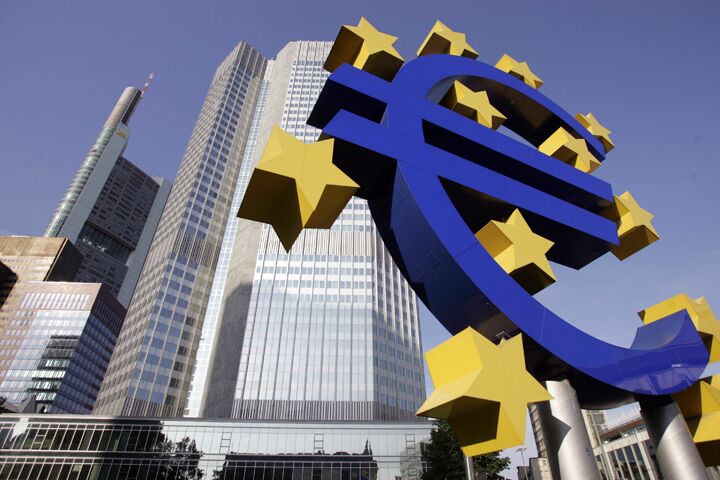
Central Banks Turn On the Printing Presses
The European Central Bank (ecb) has opened an unlimited credit window to financial institutions for two weeks to help repair damage from the credit crisis, the bank announced Tuesday. Additionally, the ecb said it had made a record $501.5 billion ready to be loaned to banks affected by the crisis.
“Unlimited” is an awful lot of money.
According to Financial Sense columnist Jas Jain, central banks have essentially promised to “rain money” on the financial sector. $501.5 billion, for example, is enough to purchase JPMorgan Chase & Co., Bank of America Corp. and Citigroup Inc.—three of America’s biggest financial institutions—lock, stock and barrel, and still have multiple billions in change left over.
According to Stratfor, the ecb’s December 18 “blank check” was intended to send the message “Do not worry—if you need more money to lend, we will lend it to you on the cheap.” Stratfor also said it was an attempt to battle corporate perception that the credit crisis would continue to worsen.
However, the ecb’s blank check sent one other message. Banking authorities are running scared that the economy may be headed for much worse. How much worse? Worse enough that the ecb is willing to do just about anything—including creating “unlimited” money out of thin air—to prevent a deflationary recession.
Modern Western economies, especially the United States, depend on high levels of consumer spending. But over the past few years, the consumer has only been able to increase spending by increasing borrowing—from the financial institutions. However, because the housing market is collapsing, banks are having to raise reserves to cover losses and are no longer as willing to lend.
Thus, central banks are afraid that consumer spending, which accounts for 72 percent of gross domestic product in the U.S., may be about to fall off a cliff and take the economy with it. Hence the cure: Create “unlimited” amounts of money to lend to the financial institutions, so that they will begin lending to each other and to consumers again.
The ecb isn’t alone. On December 12, the U.S. Federal Reserve, in conjunction with the Bank of Canada, the Bank of England, the Swiss National Bank and also the European Central Bank, announced new efforts to inject billions into the banking sector via “blind” loan auctions.
In the Federal Reserve’s case, it will give the auctioned money to un-named banks in an attempt to protect the borrower’s identity. The Federal Reserve is afraid that if it was made public which banks were coming to it for loans, it could damage the reputation of the banks involved.
Such widespread central bank action indicates the credit crisis may be deteriorating. Whether these latest moves temporarily fix the system remains to be seen.
But perhaps the biggest problem with the central bank plan is that the fix may create other unwanted problems.
“Unlimited” easy money was the reason so many unqualified borrowers were able to get loans in the first place. Now that loan delinquencies are skyrocketing and lenders are racking up losses—what is the central banks’ solution? Print up some more easy money and throw it into the fire.
Although creating money out of thin air may postpone a recession, it will not cure the fundamental economic problems causing the recession.
Printing money is comparable to how doctors use radiation therapy to treat cancer. In small doses, radiation will kill cancer cells. But radiation is also a poison. Each time it is used, it causes a whole host of other problems. Depending on the dosage and treatment, it can destroy your immune system and affect your blood. Worst of all, it destroys healthy cells too. Similarly, easy money also destroys the healthy aspects of the economy—aspects like the dollar’s value and its reputation as a store of wealth, not to mention people’s savings.
